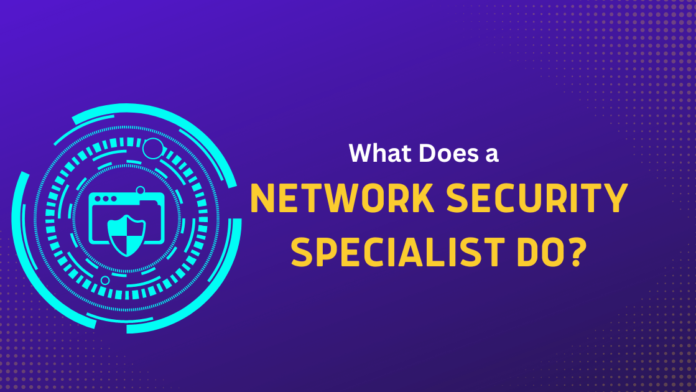People need protection for everything in their lives – from cars and homes to information contained within company computer systems. Security specialists aim to defend these computer networks against potential cyber attacks.
Professionals performing penetration testing, identifying vulnerabilities and installing preventive software are engaged daily in daily tasks that include penetration testing, vulnerability identification and preventive software installation. They also serve as frontline responses to active threats.
Network Device Integrity Analysis
Security specialists use digital technologies to monitor computer networks for security threats and unauthorized access, using strong analytical skills and reacting quickly in response to cyberattacks that disrupt company data systems. Demand for cybersecurity specialists continues to rise and this career option can be highly rewarding with the right qualifications.
Qualifications of cybersecurity specialists depend on your industry. Commonly required qualifications include a bachelor’s degree in information technology, cybersecurity or related discipline and certification. You may also consider enrolling in a cybersecurity master’s program to expand your knowledge and enhance your career goals.
Network security specialists’ job duties involve analyzing log files and other types of data to detect risks and threats to business IT systems. Furthermore, they must analyze penetration test results in order to detect weaknesses within networks, while staying abreast of attacks that threaten them as well as current threats that threaten customer privacy and employee data protection. Detecting and responding appropriately are among their core responsibilities as are responding quickly when any unauthorized activity threatens either.
Network security specialists have the responsibility of assuring both hardware and software are intact. This involves scanning new hardware for malicious code before it enters the network, verifying firmware is valid in its supply chain and tracking any undiagnosed firmware events arising in response to security incidents or attacks.
Security specialists play an integral part in CND hunting and incident responding. Their task requires them to collect, process, analyze and record telemetry of network device indicators of compromise (IOCs) such as domains, Uniform Resource Identifiers and certificates in real-time for real-time CND detection analysis.
An exciting and rewarding career as a network security specialist awaits. To enter this field, apply for security specialist positions with employers looking for those with the required qualifications, volunteer for security-related projects or participate in cybersecurity internships, gain experience through volunteering or even obtain certification such as CompTIA PenTest+ which demonstrates your knowledge in penetration testing and vulnerability management.
Intrusion Detection System (IDS) Analysis
An IDS (intrusion detection system) plays an integral role in network security by monitoring activity within a system and detecting potentially malicious attacks at an early stage, giving organizations time to react swiftly before it spreads throughout their entire network. IDSs can be divided up according to how they detect threats as well as what sources they rely on when looking for suspicious activity.
Host-based IDS (HIDS) detect data coming from host systems and audit logs on host computers, including operating system logs, window server logs, firewall logs, application system audit logs, database logs etc. Additionally, these IDSs can identify insider attacks without network traffic being involved (Creech & Hu, 2014a).
James Anderson at the U.S. Air Force developed the first intrusion detection system (IDS) in 1980 using anti-virus techniques to scan network data against known threats. Since then, IDSs have advanced significantly with increasing malware threats on computers.
IDSs can be divided into two broad categories based on how they detect intrusions: signature-based and anomaly-based. Signature-based IDSs compare network activity against known threats in order to detect suspicious activity, with this type often leading to false positives due to constant malware development being mistaken as normal activity by IDSs.
Anomaly-based IDSs use machine learning to develop a model of trustful activity and then flag any deviation from it as suspicious activity. While this approach can be effective at detecting malware attacks, it also generates many false positives that consume valuable IT resources in terms of investigating non-malicious activities that were mistakenly flagged as suspicious.
According to Scott Simkin, Director of Threat Intelligence at Palo Alto Networks, intrusion detection systems (IDSs) may be useful as part of a larger cybersecurity portfolio; however, due to the amount of time and effort required for tuning and analyzing IDS alerts they may not be appropriate for smaller organizations. Simkin recommends network flow analysis from network devices as well as log analysis from systems and applications as a more cost-effective method of monitoring suspicious activities.
Cyber Incident Detection (CND) Analysis
Network security specialists perform CND analysis to detect cyber attacks. This involves reviewing network traffic and system logs in order to spot signs of attacks; using tools to isolate their source; then creating reports with recommendations for responses that best protect an organization’s computer systems and data. CND analysis plays an integral role in protecting an organization’s digital data storage systems from breaches.
Network security experts not only identify threats to a company’s network but also train employees on cyber security protocols. This may involve teaching employees how to detect suspicious email attachments or not plug in unknown USB drives – all with the goal of preventing viruses or malware from spreading throughout computers and networks of an organization.
Network security specialists typically are responsible for identifying hardware and software that requires upgrading or replacement, monitoring networks for suspicious activity or users who should not have access and creating regular security status reports.
Network security specialists may vary widely based on industry and organization; however, one common requirement is having at least a bachelor’s degree in information technology, cybersecurity or related field such as computer science; additional certifications like CEH or CISSP may also prove invaluable.
Network security specialists must possess extensive knowledge in using various security tools and technologies in both Windows and Linux environments in order to advance in their profession. Agentless and agent-oriented collection strategies must also be established, along with vulnerability assessments in both environments as well as virtualized ones. Finally, scripting may be utilized to reduce log noise while creating collection strategies in both environments – both agentless and agent-oriented collection methodologies should be available for either environment. Finally, network security specialists must possess the ability to deploy and manage software deployment tools such as firewalls and antivirus programs efficiently. Furthermore, they should possess knowledge in regards to various other forms of protection technologies like wireless network protection, threat and vulnerability management, incident response procedures and data loss prevention technologies.
Network Security Monitoring
Network security specialists perform various duties for their employers, such as overseeing the integrity of a company’s cyber defense systems and creating plans to further secure them. A cybersecurity specialist might install and deploy a firewall solution capable of detecting malicious software; then monitor its performance around-the-clock. Furthermore, these professionals may also need to analyze existing cyber defense solutions, like virus scanners and firewalls, and provide reports detailing their statuses.
Cyber security specialists must possess in-depth knowledge of numerous computer technologies and the threats associated with them, in addition to possessing excellent communication skills so as to convey complex cybersecurity concepts clearly to non-technical coworkers and managers.
Cybersecurity professionals must possess both clear communication and rapid reaction capabilities when faced with technical issues, or an attack. In order to accomplish this, strong leadership qualities and the ability to prioritize tasks under time pressure are required of cybersecurity specialists.
Network security experts must stay current on information regarding computer viruses and cyber-threats, while continuously strengthening a company’s defensive systems. This may involve attending regular meetings with IT specialists such as information systems analysts and network architects as well as creating protocols to secure company assets.
Therefore, it is crucial for network security specialists to possess strong communication skills and be willing to travel to various sites in order to complete their duties effectively. They must be capable of troubleshooting problems remotely as well as in person while installing upgrades and patches to various devices on the network – this may involve working with routers, switches, leased lines, cameras or other hardware.
Are You Considering Network Security Specialist Training at Barton College? Their cybersecurity degree specializes in equipping students for jobs within the cybersecurity industry with training such as penetration testing, vulnerability management and other security practices. For more information about this fascinating field request a program brochure today or reach out directly.




